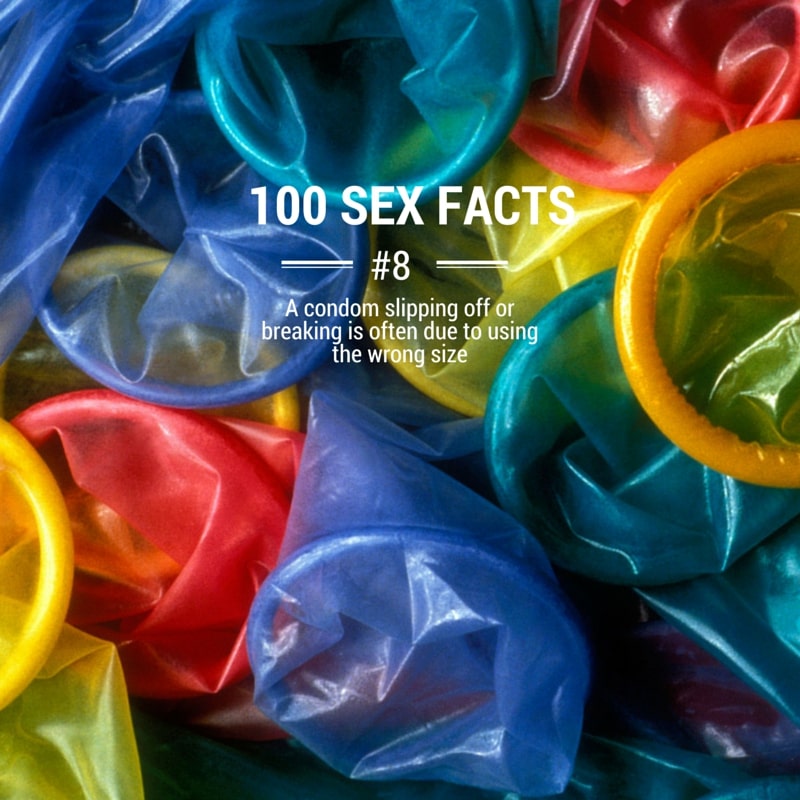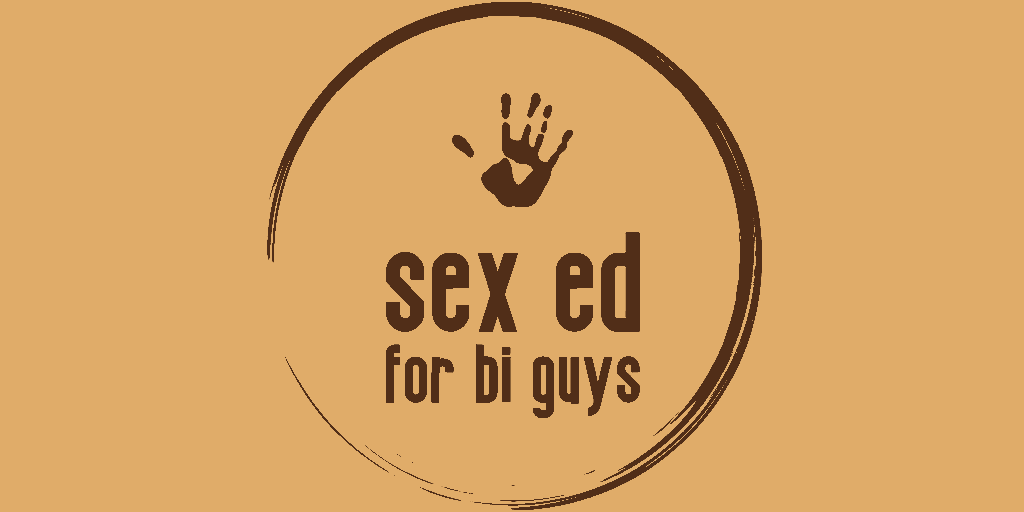This is the censored version of this post on safer oral sex. You can view its uncensored version with sexually explicit (NSFW) photos on Pillowfort.

When your partner has a different set of genitals than what you’re used to, or if you want to try rimming, you may wonder what the risks of sexually transmitted infections—STIs—are for oral sex. Here’s a short guide on what bi+ guys need to know about safer sex when it comes to c**ksucking, eating p***y, and rimming.
The most common STIs for oral sex
You can get and transmit STIs from either giving or receiving oral sex, if you or your partner are infected. It doesn’t matter what sex organs you’re playing with. The biggest culprits are herpes and HPV, which people can pass on through skin-to-skin contact. Herpes can also go from the mouth to sex parts, and vice versa. Syphilis—for men who have sex with other men especially—and gonorrhea too move from one person to the next through oral sex, as do some other infections.
STI symptoms are often invisible, even though the infection can be contagious still. Some STIs can lead to serious complications when they’re undiscovered and untreated. This is why getting tested regularly is important.

A quick note on herpes, though. . . Herpes is not fun. How often episodes happen and how difficult they are vary from one person to another. But the judgment people living with herpes face and the fear of how partners will react is worse than the virus itself.
Herpes rarely has serious health consequences. Although people can carry the virus for life, a lot of people will only have one episode. Medication can reduce the severity and the frequency of episodes, as well as the risk of contagion. A lot of people in a long-term sexual relationship with a partner living with herpes never become infected.
It’s true condoms don’t provide perfect protection from the herpes virus. Still, using condoms consistently for penetration with an infected partner helps: it halves the risk of ending up with the virus. If you or one of your partners is living with herpes and the risk of transmission worries you, talk with your doctor. A combination of medication and consistent condom use can reduce the risk of transmission by up to 90%.
What about rimjobs?
If you’re into rimming, other risks exist besides the possible infections I mention above. You need to take into account hepatitis A. Bacteria and parasites that things that have touched poop can transmit can be a problem too. Yet parasites are mainly an issue when someone is in a region where water safety leaves to be desired.
For any of these, it’s the person giving the rimjob facing the risk rather than the person receiving it. Herpes and HPV are a risk still for the person receiving anilingus.
Protective barriers and oral sex

The safest way to give or receive oral sex is to use a condom when a d**k is involved, or a dental dam when it’s on a vulva or butthole. People who dislike the taste of latex can use flavoured latex condoms—to be used only for oral sex, not penetration—or non-latex condoms. Some people do have a latex kink, though, and they might enjoy its presence during oral sex.
People not using barriers for oral sex is not a huge public health concern—even if it’s encouraged—and many people don’t use them. Still, they give the best protection, especially from STIs that are easier to transmit through oral sex than HIV.
Some people feel safer using barriers for oral sex, if just for their peace of mind. When you want a gold star for respect, let your partner know it’s okay if they want to use a barrier for oral, even when you’re okay with not using one yourself. Many people would like to use barriers, but are afraid of how a partner could react if they ask.
Having more partners increases your odds of exposure to an STI. So the more partners you have, the more you should think about using barriers for oral sex. Consider it even more if you enjoy group sex or make a living doing sex work.
STI vaccines and testing
In many places, the hepatitis A and B vaccines are free for men who have sex with men, and you should think about getting your shots. Even if you need to pay for these, it’s worth shelling out the money if you can afford it.
Also, public health services encourage anyone age 26 and younger to get the HPV vaccine. Many younger people received the vaccine when they were kids. People usually associate HPV with cervical cancer. But even when your body has no cervix, HPV can sometimes cause throat cancer or anal cancer, among others. Once again, even if the vaccine is not free where you live, it might still be worth the money.
If you have unprotected oral sex, get an STI test every 6 months, even when you never do penis-in-vagina or penis-in-butthole penetration. The regular blood work most doctors carry out does not include STI testing. You should ask for it specifically, or go to a service that specializes in it.
Ask what infections they will be testing for. When you give unprotected oral sex, you want to make sure they will swab your throat—with a long Q-tip—for a bacterial sample. When you have sex with other guys, they should do a blood test for syphilis too, which they don’t always do during regular STI check-ups. At the moment, syphilis is mostly present among men who have sex with men anyone can end up with syphilis.

What about HIV and oral sex?
You can get HIV from giving blowjobs, especially when you get semen in your mouth. The risk is much lower than for penis-in-vagina or penis-in-butthole sex, though. Getting HIV from eating p***y is extremely rare, although the risk is higher when there’s menstrual blood present. There are no documented cases of people getting HIV from rimming.
If you or the person you’re sleeping with is HIV-positive, you should know treatment lowers the risk of transmission. There are no documented cases of the virus infecting someone else through a person with an undetectable viral load. Using PrEP—a preventive HIV treatment—can prevent HIV transmission too. Many doctors prescribe it for men who sleep with other men. Depending on where you live, your insurer may cover PrEP. Each of these strategies can greatly reduce the risk of HIV transmission if one of you becomes infected. Unfortunately, they won’t protect you from other STIs.
Reducing risk without barriers
Using a condom or a dental dam gives the best protection from HIV and other STIs. Still, when you don’t use them for oral sex, here are ways to reduce HIV risk, especially when you give blowjobs.
- Don’t brush your teeth or floss two hours before and after giving oral sex; that can irritate your gums and help HIV enter your bloodstream.
- When you’re aware of any cuts or sores in your mouth, use a condom or a dam.
- When you have a partner whose body can produce semen, ask them not to come in your mouth and to warn you before they come.
- If you end up with semen in your mouth anyway, spit it out, don’t swallow it, and do not brush your teeth afterwards—it can cause microscopic cuts in your gums, and open a gateway for HIV to get into your bloodstream.
- When your partner can menstruate and they’re having their period, use a dental dam to give them head.
Good information on protecting your health when you’re having sex is important. It lets you make decisions based on a degree of risk you’re comfortable with. It’s as much about staying healthy than it is about your own peace of mind when you’re messing around. Choose what works best for you and your partners, and have fun!






